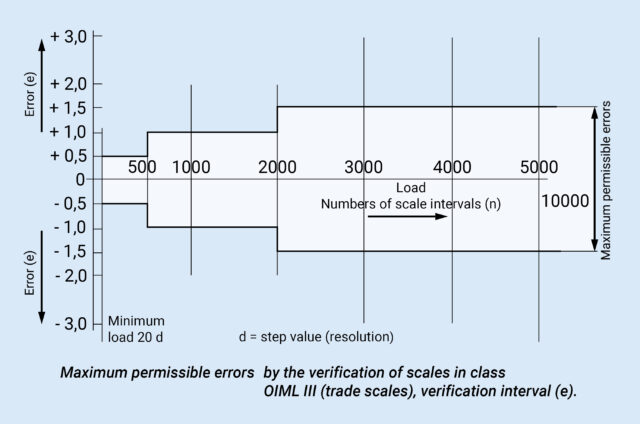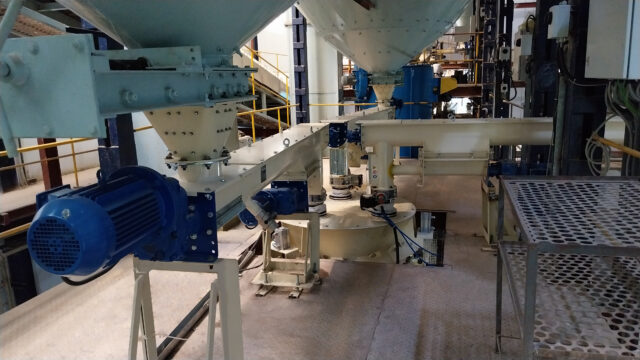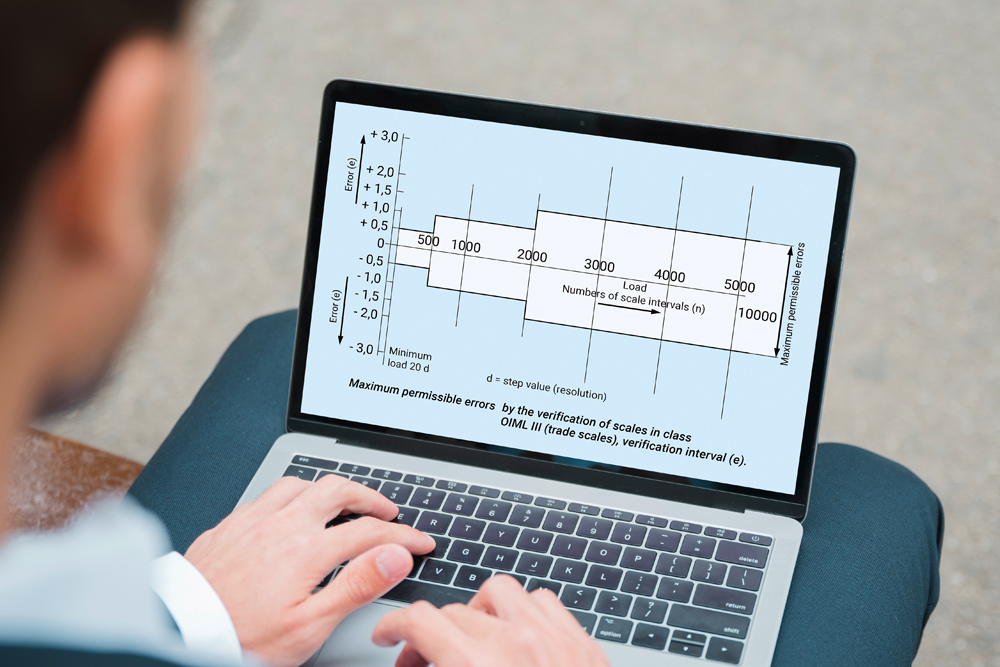The Batch Plant is often neglected but critical component of the glass melting process when producing high quality glass. In this process the most important elements are dosing and weighing. Any inconsistency in the batching process due to improper mixing of raw materials will adversely affect the quality of the end product. By utilizing the latest advancements in weighing and dosing technology and control systems, optimal dosing accuracy and batch consistency can be achieved.
For solar glass production to be successful, it is essential that the raw materials are well managed. A high quality raw material mix is based on precise dosing. This means, among other things, the right choice of components such as load cells, mounting kits and weighing instruments.
In addition to all this, an intelligent dosing controller is needed that must adapt to changes in the bulk properties of the raw material. For example, moisture causes the raw material to flow differently from the same material when it is dry. This requires a predictive dosing algorithm that takes moisture variations into account. So called pre-act value is calculated after each dosing event based on the reading of the scale. That value takes into account the amount of material in flight – material which is not in the scale but will be there or in negative dosing; material which is going to be discharged from the scale. A good pre-act correction eliminates tolerance alarms almost completely. That means chemically accurate composition in batch mix as long as the raw materials remain chemically stable.
Dosing accuracy – sum of the whole chain
Dosing accuracy (= dynamic accuracy) describes how well the scale, working in combination with the dosing devices, is able to feed the amount of material into or out of the scale. Further, the whole sequence of components must be taken into consideration, as follows:
- Load cells
- Load cell mounting
- Other mechanical components of the scale
- Weighing instrument
- Dosing Control
- Mechanical dosing devices
- Raw material
- Effects of ambient disturbances, such as vibration, magnetic fields, etc.
The final result of dosing is therefore, as good as the sum of the whole set-up. Firstly to secure that the scale has good static accuracy, which falls to the requirements of OIML 76 Class III as a minimum and secondly the dosing device is capable of keeping the cycle time required and to maintain fine feeding ability although the raw material properties may vary.

Weighing methods – weigh-out or weigh-in?
Measuring the weight of the material can be done either when it is fed into the scale or as it is discharged from the scale. Weigh-out is traditionally used in the glass industry because it is simple to organize in an in-line silo lay-out: each raw material or in fact silo has its own hopper scale. Size of each scale is based on the recipe, which means large usable signal for the weighing instrument from the load cells to operate, thus theoretically better accuracy.
Weigh-in means that several materials can be dosed into one hopper scale. Despite the fact that the relative error increases for each material dosed, it nevertheless remains within the value limits which are acceptable for the process itself.
Weigh-in method offers various advantages. Fewer scales are needed. Also less scale discharge devices are required – the dosed materials can be discharged into the mixer in a tower type batch plant. And it is possible to eliminate a belt conveyor between the scale and the mixer, thus reducing the possibility that some of the material may be lost due to spillage by the belt.
Mechanical construction and the control system – two elements required
A good dosing result is a combination of well defined mechanical solution and its control system. It is preferred to have dosing control done by the dedicated electronics, like batch controller. Today the PLCs are fast, which gives the possibility to have dosing controlled by a PLC. Anyhow the program should contain all the features which are necessary, like in the batch controller, the pre-act value setting being the most important. In such solution the weighing instrument can be simpler without sophisticated dosing controls built in it. That gives a possibility to avoid any “black boxes” in hardware.
Renovation for solar glass production
Gobind Glass Industries Ltd. India invited Lahti Glass Technology to quote upgrading of an existing Batch Plant for the needs of their planned new furnace for solar glass production. Negotiations were concluded in late summer 2021.
In India there is a big boom in solar panel production. The new furnace was specially dedicated to satisfy the demand of extra clear glass. Production of such glass requires very low iron content in the raw materials, typically below 100 ppm. That also means special technology for the machinery, first to eliminate possible metallic and paramagnetic impurities and secondly to protect raw materials from contamination, like wear of material contacting surfaces. It is vital to have low iron content, because iron makes glass greenish. Loosing transparency is harmful for the efficiency of the solar panel.
According Mr. Purvish Shah, Director of Global Glass Works and Gobind: “Lahti responded to the challenge and included all necessary gears for our demand. They have expertise since they have renovated several normal batch plants of normal float glass production to low iron batch plants”.
The engineering work itself required careful measurement of the existing structures to fit the new design into the building. The target was to keep some of the existing equipment but modified slightly. All the existing and new equipment got a new control system, too. For example the weighing instruments are the latest available technology including Lahti’s famous dynamic material in-flight compensation.
There were some extra challenges during the execution phase due to worldwide logistic problems in component deliveries caused by Covid-19 and war in Ukraine. Anyhow the goods were delivered on time.
“Our plant has been in operation for several months now and we are pleased to say that Lahti’s Batch Plant is definitely performing well and exceeding our expectations”. Says Mr. Shah.



